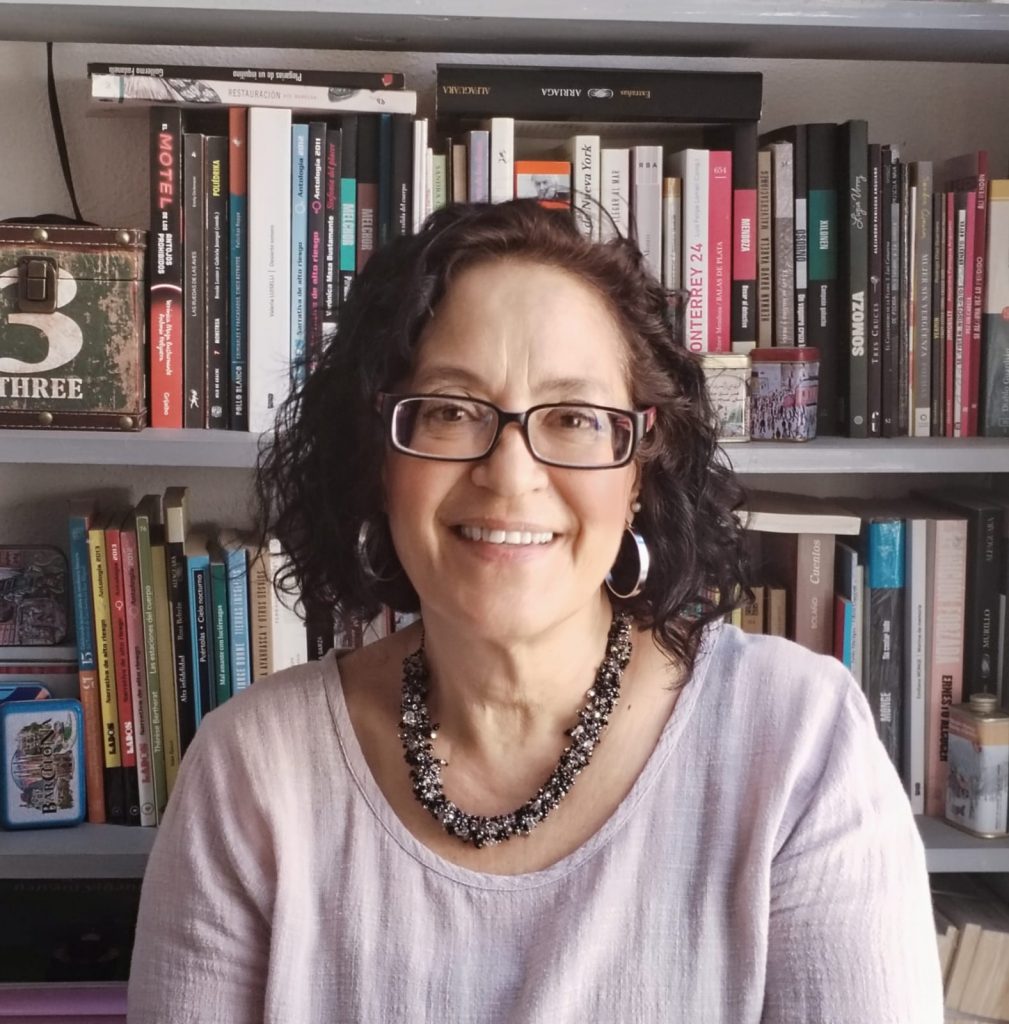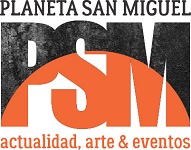By Bernardo Moreno
It´s been twenty years since the beginning of the Writers’ Conference in San Miguel de Allende. Its renowned director tells us about its beginnings and evolution, in addition to the achievements and challenges of what is perhaps one of the most recognized bilingual festivals in North America. “Where have you seen a literary legend, the author of the emblematic novel The World According to Garp, a professional wrestler in his youth, coincide in the same place and at the same time with another writer like John Vaillant, and on top of that, the public can meet them, greet them, and even take a selfie?”, Armida Zepeda asks us.
BM: What is your role in the festival and what challenges have you faced in preparation for this latest edition?
AZ: I am the director of the Writers’ Conference in San Miguel de Allende. I design and coordinate the entire program in Spanish. For this commemorative edition, the challenges have been to return to being an inclusive conference of national and international excellence, and with a broader, more stimulating and attractive program for the public of San Miguel and Mexico. We have renewed the community outreach programs thinking of high school and university students of San Miguel. We returned to our roots with the national and international writing contests, achieving an important response both from Mexico and other parts of the world.
Today the festival is made up of a new committee headed by Susan Page, founder and president, and by Jodi Pincus, executive director of the entire conference. We are a bilingual, young, and dynamic team that generates new ideas and more professional ways to make a large-scale event, in combination with the experience of other members with more than 15 or even 20 years of collaboration with the Writers’ Conference. The result has been incredible and we are confident that this edition will be the biggest literary celebration of all.
BM: What can we expect this time? What are, from your point of view, the highlights of the festival?
AZ: The highlights this time around, without a doubt, are the keynote speakers. All of them, but particularly John Irving. Where have you seen a literary legend, the author of the emblematic novel The World According to Garp, a professional wrestler in his youth, coincide in the same place and at the same time with another writer like John Vaillant, and on top of that, the public can meet them, greet them, and even take a selfie? Only at the Writers’ Conference in San Miguel. Other writers such as Jennifer Clement and Jorge F. Hernández will be there, and they will surely make us laugh and have a good time. And, as if that wasn´t enough, we will be able to meet other young literary proposals such as Kaveh Akbar and Deepa Rajagopalan.
In addition, the Conference will offer for the first time wellness venues such as yoga in the morning, the coffee and reading corner, affinity groups for lunch, happy hour to enjoy free events in Spanish and English, and the Festival Bookstore that has invited the entire literary community of San Miguel.
BM: How did the idea for the festival come about? What aspirations did its founders have, and how has it evolved after twenty years of existence?
AZ: The idea came into being in 2005, when Susan Page and other expats realized that, except for the Public Library, there was no space, reading room, or association that would encourage the meeting of local and foreign writers in San Miguel. That´s how Sala Literaria San Miguel first appeared, and it began as a small gathering that would invite an American writer to deliver a talk and only twenty-something people would show up. Susan realized very soon that it was necessary to include Mexican writers in this venue, and shortly after Canadian writers were also included, clearly we are a bilingual and multicultural community.

This new edition of the Conference is a breakthrough for us because, as we are celebrating our 20th anniversary, we intend to be recognized again as one of the most important bilingual festivals in North America. We believe that today more than ever it is necessary to build literary bridges to unite prestigious writers from Mexico, the United States, and Canada, foster networks of contact between professionals from the publishing world and emerging writers, and bring together readers from all over the continent. And if it is necessary to rebuild those bridges again, we will do it.
BM: We noticed that the program includes a wide variety of participants, such as content generators and influencers. How has the festival evolved in this regard?
AZ: It’s great that you notice it! All festivals, book fairs, and conferences have to evolve. As you know, during the pandemic there was a boom in online reading, and publishers found new channels of propagation through bookstagramers, booktubers, and bookinfluencers. This boom in the use of social networks also led many authors to become their own PR department, which changed the way books are promoted and generated, for good and bad. The truth is that the revolution caused by literary influencers has opened a new market of readers and writers with innovative, original, and sometimes worrying proposals.
The English and Spanish programs of the Conference accepted the challenge and we have decided to include workshops or talks with these online content generators. It was not easy, some of them are almost rock stars and it is very difficult for them to accept an invitation like this! Alejandra Arévalo, known as Sputnik Libros, Sara DiVello, and Leslie Zemeckis, will be the “influencers” invited this year. And I ask you to write it in quotes, because they are all writers as well and will be part of the workshops in both the Spanish and the English programs.
BM: Who should we thank for the realization of this event? What support or challenges have they faced?
AZ: We have a long list of partners and sponsors who this year in particular have come together to support our community programs, which include scholarships for local students and free events in Spanish and English open to the public. In August of last year it was announced that the program in Spanish would be free, as the idea is to recognize San Miguel de Allende as the host city and celebrate this 20th anniversary with its inhabitants. Dallas Literary Society, Fomento Educacional A.C., Giller Prize, are some of the organizations helping us. We also thank the Municipal Government of San Miguel and so many hotels and restaurants that have always offered us their support. Personally, I want to thank Dr. Eleazar Romero and Pablo Rodríguez for their invaluable support.
BM: Finally, what is your vision of the current state of literature in Mexico? Is there anything else you´d like to add?
AZ: I think that the current state of Mexican literature is more global than ever. There are more Mexican and foreign women writers published and distributed by publishers and bookstores in Mexico. There are more writers published by independent national and foreign publishers. Nowadays the internet, through social networks, brings us closer to Mariana Enríquez, Fernanda Melchor, Almudena Grandes, Nicolas Feuz, James Ellroy, Rosa Montero, Camila Sánchez, Rodrigo Díaz Guerrero, Ave Barrera, and many more. I think that contemporary literature is a perfect circle: if there are more writers, there are more readers.That is the whole literary scene: it starts with our community, and then it grows into a national and even a universal scene. It is up to the festivals and conferences to bring together those who create books and those who read them.











